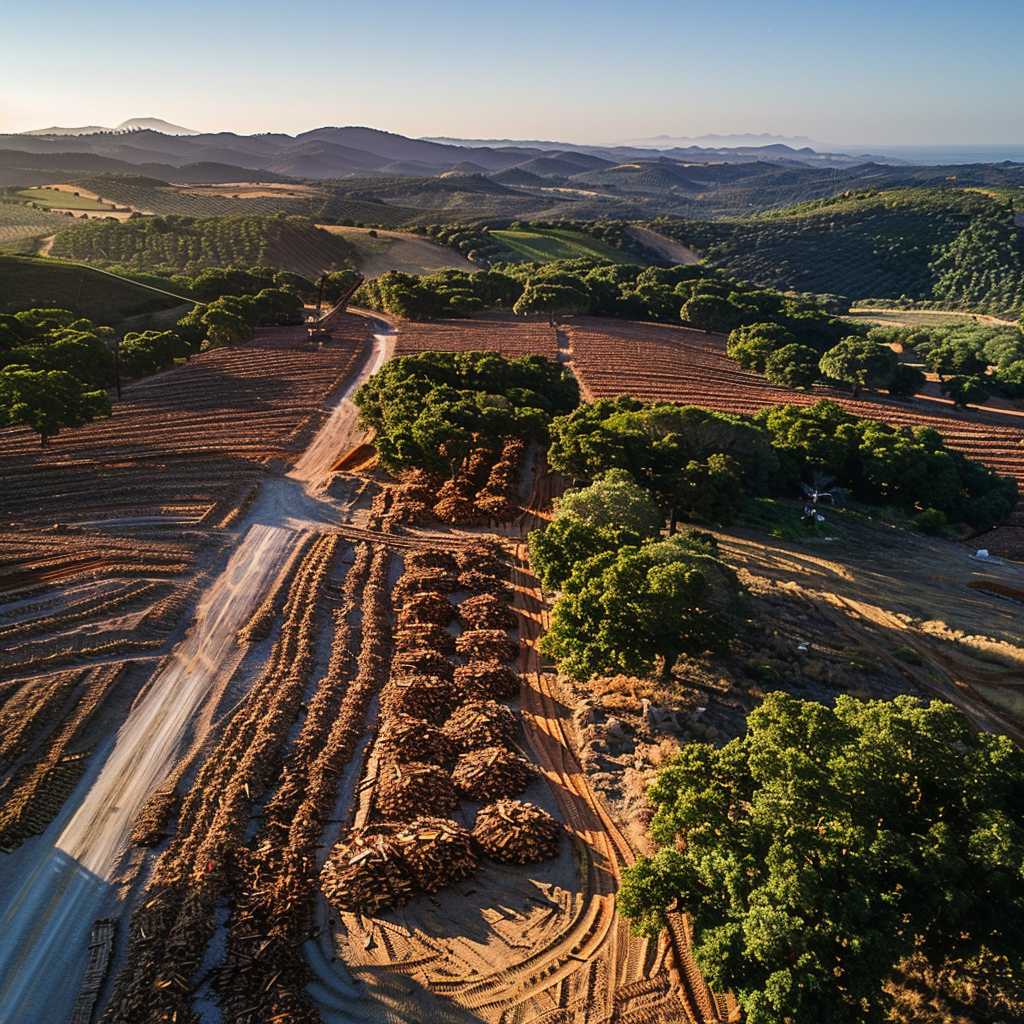The Legacy and Impact of Amorim Cork: Sustaining Tradition and Nature for Future Generations
Amorim stands as a beacon of sustainability and innovation within the cork industry. As the world’s largest cork producer, Amorim has solidified its reputation by marrying venerable tradition with modern technology to offer a vast array of cork products that extend well beyond wine stoppers. The Portuguese based company exemplifies a business model that underpins environmental stewardship, economic growth, and the cultural importance of cork. This article seeks to explore the history, processes, product diversity, and environmental significance of Amorim within the global context.
History and Growth of Amorim Cork
Amorim’s journey began in the 19th century, with the founding of a small cork-stopper workshop in Portugal by António Alves Amorim in 1870. Through the generations, the family-owned business expanded, both in terms of size and scope. Today, Amorim leads the industry in cork production and is lauded for its commitment to quality, sustainability, and innovation.
As the company grew, it diversified its portfolio to include floor and wall coverings, insulation, composites, design material, among others alongside its traditional offering of cork stoppers for wine bottles. This expansion has allowed Amorim to maintain a competitive edge while emphasizing traditional harvesting methods that guarantee no trees are harmed in the process.
Manufacturing Process
The manufacturing prowess of Amorim hinges largely on its ability to lean on traditional methods while integrating modern techniques to improve quality and efficiency. Traditionally, cork is harvested from the bark of Quercus suber trees every nine years without felling them. Amorim ensures these practices are kept environmentally friendly by conforming to sustainable harvesting methods that also support long-term ecological balance.
Further along the production line, advanced technologies such as computer vision systems are deployed to sort and grade cork bark for various applications. High-end stoppers for fine wines often require intricate manufacturing processes where precision is non-negotiable – another aspect where technology advancement features prominently.
Product Innovation and Diversification
Diversification has allowed Amorim to not only dominate the stopper market but also venture into new territories. These arenas include technical applications for aerospace and automotive industries, where cork’s thermal resistance and lightweight properties are invaluable. Additionally, cork oak forests support biodiversity which aligns with global conservation efforts, lending an ecological facet to the product’s desirability—from fashion to spacecraft.
The research and development team at Amorim continuously seeks opportunities to innovate within its product range. Recent developments comprise bio-cork solutions that integrate recycled materials, underscoring a commitment to circular economy principles.
Environmental Significance
Perhaps Amorim’s most notable contribution lies in its environmental stewardship. The sustainability angle isn’t simply about leveraging cork’s natural biodegradability; it’s also about promoting the ecological integrity of cork forests that serve as carbon sinks and ecosystems for endangered species.
Investment in renewable energy and waste treatment systems further accentuates the company’s determined march towards diminution of its carbon footprint. Such initiatives not only serve eco-friendly interests but also resonate with consumers increasingly keen on making sustainable choices.
Furthermore, through strict forest management policies in collaboration with governments and NGOs like WWF, Amorim advocates for protecting against overharvesting, thereby safeguarding these forests for generations while contributing to rural economy sustainability.
Market Implications and Industry Leadership
Amorim continues to set benchmarks within the cork industry due to its emphasis on quality control from tree to product. Their widespread presence across different markets allows them to adapt quickly to varying consumer needs—whether it be providing wine stoppers which enhance ageing or delivering construction materials that better insulate buildings.
The leadership role held by the company compels it toward driving industry-wide standards which champion not just prime cork manufacturing practices but also norms that encompass fair labor treatment within supply chains reminiscent of their owner’s ethos toward responsible enterprise.
Notes
*Image Description*
An aerial view showcasing vast expanses of scenic cork oak forests with patches neatly harvested demonstrating sustainability. In the foreground, meticulously sorted piles of cork bark can be observed adjacent an on-going harvesting operation intriguingly merging tradition with modernity.
